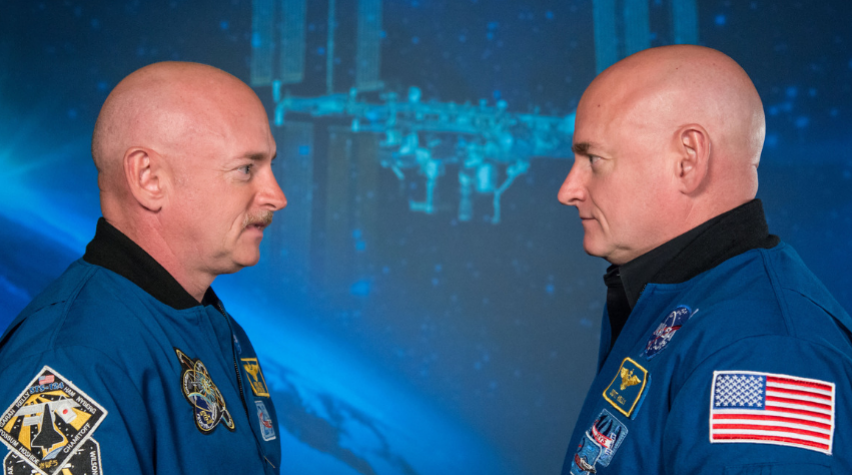
While well over 500 humans have been flown into space, missions lasting longer than 300 days are quite rare, totaling only eight. For this reason, scientists have many questions about the effects of long-term space travel on the human body. That’s where a very special set of astronaut twins, Scott and Mark Kelly, come into play. By sending one into space, scientists have been able to test and compare results for each twin to better understand some of the effects of time spent in space.
While Mark was living on Earth in Arizon, Scott spent 340 days aboard the International Space Station. Upon his return, teams of scientists compared the two, looking at physiology, memory abilities, gene expression changes and more before, during, and after Scott’s time in space.
Susan Bailey, PhD, a professor in radiation cancer biology and oncology at Colorado State University and a leader of one of the research teams on the project, explained explained in an article in Genetic Engineering & Biotechnology News that this project represented “the most comprehensive view that we’ve ever had of the response of the human body to spaceflight.”
How did the twins differ?
The study’s results showed that most of the changes that occurred in space reversed upon return to earth, yet some changes remained. Just one example: about 9% of the genes that changed activity while in space remained in their changed state upon return to Earth. You can see a quick summary of the results here, as well as a summary of some interesting figures from the study here and here.
To learn more about the study, see the published findings in Science. You can also find more from NASA here.
STAR Tech 2019
The 2nd Space Travel: Adaptive Research and Technologies from Biological and Chemical Engineering Conference (STAR Tech) will be held in Boston on November 18-20, 2019.


